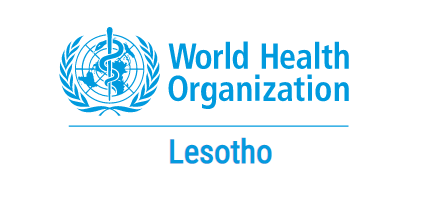When mother-of-three Mamfe Motloheloa tested positive for tuberculosis (TB), the diagnosis not only saved her life, but also those of her children. “My condition was critical. I was rushed from the clinic to the hospital, where my treatment journey started,” recalls Motloheloa.
After she was discharged from hospital following a week of treatment to stabilize her condition, an active case-finding team was dispatched to her home. The team screened the children and, concerned by what they found, referred them to the health facility. The results of an x-ray showed that they too had TB.
“They were enrolled in treatment, which is now complete and they are all healthy again,” says Motloheloa.
The timely response by health care workers at the Samaria Clinic in Motloheloa’s home village of Motloi, in Lesotho’s Mafeteng District, reflects a focus by the country’s health authorities, supported by partners like World Health Organization (WHO), to identify “missing” people with TB and initiate treatment to save lives.
While TB incidence in Lesotho has dropped by 13% to 661 cases per every 100 000 people in the past decade, the country still has one of the highest incidences in the world. Case-finding has increased from 32% in 2020 to 47% in 2023 but needs to almost double to reach national and global targets for ending TB by 2030.
“We have a major challenge of tracing the ‘invisible patients’ because people move a lot. Some reside in difficult terrains and they cannot access health centres in time,” says Dr Llang Maama, who heads Lesotho’s national TB programme in the Ministry of Health.
Health facilities are critical in the drive to intensify active case finding and, according to Maama, most undiagnosed cases of TB are identified at a health facility level. This means that people who test positive can be immediately placed onto treatment and cured. Treatment coverage of people diagnosed with TB is 77%, meaning that the 90% target is well within reach.
The approach aligns with WHO guidance that active case-finding, or systematic screening for TB, is an important, efficient and cost-effective tool help address diagnosis and treatment delays, halting unnecessary spread of the disease.
Motloheloa is grateful that she and her children got the treatment they needed. “I am so happy that they are now back at school,” she says, adding that the clinic also assisted the family with clothing and food, including food supplements to boost their recovery.
“They always call me to check if I am doing fine,” she adds.
Maphakiso Maqeba, the head nurse at Samaria Clinic, says she is delighted when TB treatment can help families regain their health. “The children are now cured and I’m particularly happy about Ms Motloheloa’s recovery. She comes in regularly for check-ups,” she says.
The Government has also implemented other innovations to ramp up the TB response. This includes digital technology in the form the Smart Pill Box, to help patients adhere to their treatment plans by automatically indicating when they should take their treatment, along with using artificial intelligence to aid TB screening efforts.
Along with providing guidance for the adoption of new guidelines for TB prevention and treatment, WHO has supported Lesotho’s Health Ministry to train all health care workers, focusing on treatment of people with multi-drug resistant TB. The Organization has also provided technical support to the Ministry of Health to conduct the joint TB/HIV epidemiological and programmatic review. These reviews assist the Ministry in understanding the trends of TB infection in the country and how the programme is performing.
On World TB Day on 24 March 2024, the country will launch the Multisectoral Accountability Framework for TB, a tool developed by WHO to foster multisectoral collaborations and accountability for putting political commitments to end TB into practice.
“Lesotho remains a high TB burden country. We now understand the country’s epidemiology and programmatic gaps. We have mobilized resources from the Global Fund and the United States President’s Emergency Fund for AIDS Relief. We are at a critical time to now act with the available tools that we have to meet the targets of ending TB by 2030,” says Dr Francis Mupeta, WHO Lesotho’s Technical Officer for the TB/HIV programme.
Distributed by APO Group on behalf of World Health Organization (WHO) - Lesotho.
Latest Stories
-
Africa Food Systems Parliamentary Network urges governments to increase investment in agriculture
1 hour -
AU and partners urge youth to get involved in efforts to transform continent’s food systems
1 hour -
Fire kills 3-year-old at Asawase-Dagomba Line in Ashanti Region
2 hours -
Paskal A.B. Rois: How Mahama inspires me
2 hours -
Complete abandoned projects in Akatsi North District – Chiefs to Mahama
2 hours -
Painter and sculptor B. Acheampong turning his passion for art into profitable venture
3 hours -
Presidential lodge, RM residency in Ashanti region left to rot away
3 hours -
Herty Corgie highlights the essence of gratefulness in ‘My Gratitude’
5 hours -
ANNOUNCEMENT: Joy FM temporarily goes off air January 11
5 hours -
Yango honored with two titles at the Technovation Africa Awards 2024
6 hours -
Aowin Traditional Council declares war on illegal mining with spiritual intervention
6 hours -
Leadership must ensure equity for all citizens, regardless of faith – Asiedu Nketiah
6 hours -
Prof. Alex Manu appointed Executive Director at Centre for Social Justice
6 hours -
Imminent changes within some key security agencies, state institutions, and its implications
6 hours -
There are more women than men, but there’s a man for every woman – Rev. Nana Yaa
6 hours

